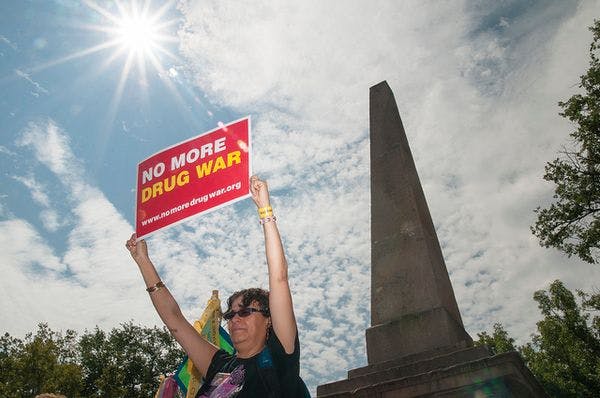La décriminalisation est une stratégie de santé publique
Traiter et soigner les usagers actifs de drogues et d’alcool, et supprimer le recours à la prison comme première intervention envers les personnes qui ont un trouble lié à un usage de substances psychotropes devrait être au centre de la réponse mondiale aux hépatites virales. Pour en savoir plus, en anglais, veuillez lire les informations ci-dessous.
By Annette Gaudino
“Unidentified Filipino male. Unidentified Filipino male. Unidentified Filipino female. Unidentified Filipino male…” It takes a long time to read 1,900 names, long enough to feel every inch of the concrete wall against my back. We had gathered outside the midtown Philippine Consulate to “die in”— dozens of activist bodies laid out under a large picture window through which a video of sandy white beaches and tropical flowers played on a loop. The protest of newly elected Philippine President Duterte’s extrajudicial killing spree, directed at suspected drug users and dealers, received international press attention and unleashed a torrent of invectives on the social media accounts of organizers. This was further evidence, if any was needed, that the so-called war on drugs has always been a war on drug users: individuals systematically robbed of their freedom and dignity—even their names.
According to a new meta-analysis conducted by Kate Dolan, PhD (University of New South Wales), and colleagues on the burden of HIV, tuberculosis (TB), and Hepatitis C virus (HCV) among prisoners, there are 10.2 million incarcerated people worldwide, including 2.2 million in the US. An estimated 15.1% of prisoners worldwide have HCV and 4.8% have chronic Hepatitis B virus (HBV), which are higher prevalence rates than those for HIV (3.8%) and active TB (2.8%). In addition, 30 million prisoners transition between the community and prison each year. Research indicates that infection risk increases following release from prison, both for the formerly incarcerated and their sex and drug-using partners. Thus, to achieve the World Health Organization’s (WHO) goal of eliminating viral hepatitis as a public health concern by 2030, civil society has a duty to intervene where criminalization and incarceration conflict with sound public health policy.
Click here to read the full article.
Keep up-to-date with drug policy developments by subscribing to the IDPC Monthly Alert.
Thumbnail: Eneas De Troya CC
